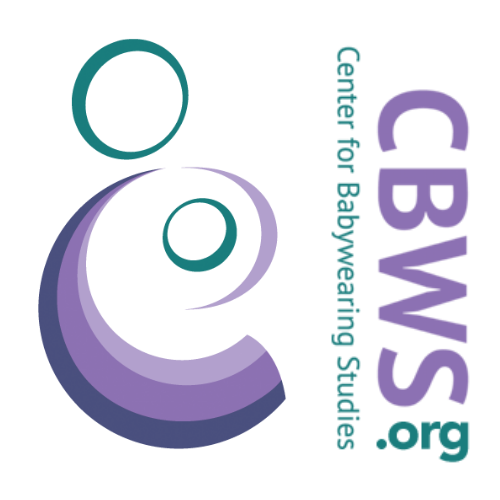Building community through babywearing research:
What is the LANGUAGE of BABYWEARING?
Join us for this free online research forum. In recent years, research on babywearing, the practice of carrying a baby with a cloth carrier, has covered a range of topics including the social networks of babywearing communities, how babywearing is tied to mobility and motherhood, how wraps are a form of material culture, how babywearing contributes to mother-infant maternal responsiveness, as well as infant cognitive development.
This forum focused on the Language of Babywearing provides researchers a chance to delve deeper into the role of language and communication in their babywearing research.
The even took place on November 16th 2021. We currently editing the videos. You can still sign up through the form to get updates when the videos are up and of course we will let you know when the research project starts in 2021.
This free, public, research forum was be held online on Zoom.
To get access to the recording sign up below (videos will be posted first week of December)
BROUGHT TO YOU BY



Full Speaker Line Up
Christine Schreyer
Christine Schreyer, PhD is an Associate Professor of Anthropology at the University of British Columbia’s Okanagan campus. As a linguistic anthropologist her research has focused on the role that language ideologies have in the language planning of Indigenous and other minority speech communities. She has worked with Indigenous communities in Canada and in Papua New Guinea on language documentation and revitalization projects, including the development of community-based dictionaries. Christine has also conducted research with the fan communities, such as the community of Na’vi speakers, on issues related to identity strengthening and community-building. Her new research project investigates how people learn about babywearing in a North American context. As the babywearing community uses a range of in-group terms and acronyms, like many fan communities, this research will attempt to determine ways that will allow individuals interested in babywearing to learn, and communicate, about the practice more easily.


Emily Little
Emily Little, PhD, is the Founder and Executive Director of Nurturely (nurturely.org). Her research combines approaches from anthropology, psychology, and public health to examine infant-caregiver interaction and health behavior, with a focus on physical contact as a mechanism for communication, responsiveness, and feeding success. She is trained as a Lactation Educator Counselor and a Babywearing Educator and is passionate about conducting research that impacts community wellness. Her work in Vanuatu, Bolivia, Guatemala, East Africa, and India inspired her interest in infant carrying and established a strong foundation for respecting culture and promoting equity in all aspects of her work.
Lela Rankin Willams
Lela Rankin Williams, Ph.D. is an associate professor and the associate director of the School of Social Work, Tucson at Arizona State University. She completed her doctoral and post-doctoral training in infant and child development and she is also a certified babywearing educator. Dr. Williams conducted two randomized intervention studies in the community to empirically test the benefits of babywearing among teenage mothers (study 1) and mothers with substance use disorders (study 2). She has demonstrated health, mental-health, and developmental benefits associated with babywearing for caregivers and infants. For the most up to date updates on her research:
(clicking on link will open a new browser window)


Natalie Djohari
Natalie Djohari is an anthropologist specialising in affective relationships and material culture. Her work on the babywearing community in the UK focuses primarily on how relationships within the babywearing community, and between parent and child, are mediated through the practice and materiality of babywearing. Her focus has been on wrap fabrics and she has published on the online culture of buying and selling preloved wraps. She is currently Research Associate at the University of East Anglia and Visiting Research Fellow at Goldsmiths, London.
Sarah Hallenbeck
Sarah Hallenbeck, PhD, is Associate Professor of English at the University of North Carolina Wilmington, where she teaches classes in writing, rhetoric, and gender studies. Her research examines the interrelationships among gender, materiality, and language. In particular, Sarah considers the ways that new public arguments emerge from and are enabled by changing material landscapes. Past and current projects consider the arguments enabled by the North American bicycle craze of the 1890s, the emergence of the disposable diaper during the mid-twentieth century, and the babywearing phenomenon of the late twentieth and early-twentieth centuries. Sarah is excited to engage in an interdisciplinary scholarly discussion about babywearing that will make the practice more accessible to parents today.


Joanna McNeilly
Joanna McNeilly is the founder of the Center for Babywearing Studies (CBWS). She brings her knowledge of adult learning, person-centered communication, and babywearing together to create an in-depth training program for those professionals who are ready to bring babywearing education and consultation into their work. She has taught babywearing to parents and professionals for over 15 years, and is passionate about reducing the overwhelm many people new-to-babywearing experience. Making babywearing fun, easy, and open to all is a core tenet of the CBWS training. She is a founding and current board member of the International Board Certified Infant Contact Consultants Association (IBCICC).
Joining Dr. Schreyer in this new research project is exciting and will help ensure the language of the community is easy to understand, opening the door to those who would like to adopt babywearing as a practice.
